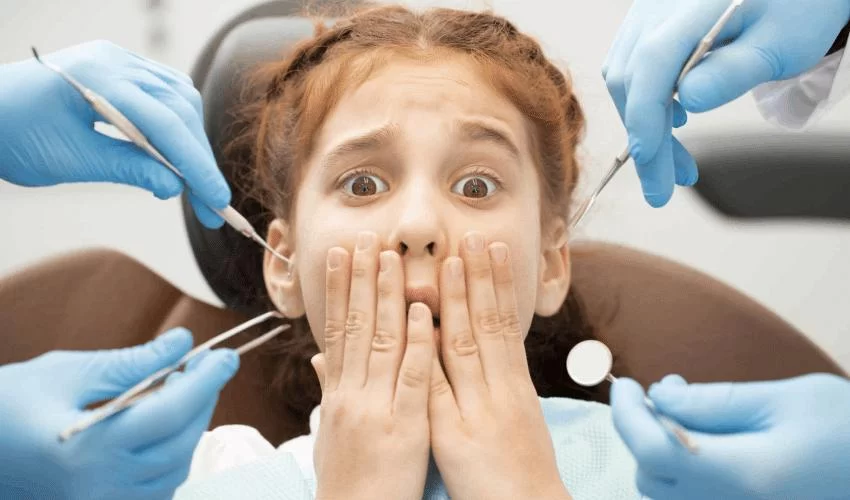
Helping Your Child Overcome Dental Fear: A Parent's Guide
As a parent, one of the most challenging experiences can be watching your child struggle with dental fear. It’s a common issue, but it doesn’t have to be an obstacle to your child's oral health. Overcoming dental fear is not only important for their immediate comfort, but it also sets the stage for a lifetime of good dental habits. Having personally navigated this journey with my own child, I’d like to share some insights and strategies that can help you ease your child’s anxiety about dentist visits.
Understanding Dental Fear in Children
Before jumping into solutions, it’s crucial to understand what dental fear is and why it happens. Dental fear is a type of anxiety that can manifest in children for several reasons. My child, for example, developed a fear of the dentist after a particularly uncomfortable cleaning session. The scraping sounds and unfamiliar sensations were enough to make her dread any future visits. For some children, it's the unfamiliarity of the environment, the sounds, or even a previous negative experience that can lead to an aversion to the dentist.
Interestingly, research shows that up to 20% of children experience dental anxiety at some point. It’s not just about fear of pain, but also the fear of the unknown. When children don’t understand what’s going on during a dental appointment, it can create confusion and anxiety. Understanding this is the first step in helping your child overcome their fear.
Step 1: Talk About the Dentist in a Positive Light
The way we, as parents, talk about dental visits can greatly influence our children’s perceptions. I learned this the hard way after one of our early visits to the dentist. I mentioned to my daughter how nervous I was about the appointment, which inadvertently made her feel more anxious. Instead, start talking about the dentist in a positive, casual manner. Mention that the dentist is there to help keep teeth strong and healthy, and that it's a routine part of staying healthy. You can even tell fun stories about trips to the dentist, focusing on the good aspects rather than the potential discomfort.
It also helps to address their concerns directly. If they are afraid of the chair moving, the sound of the tools, or the sight of needles, talk about these things before the appointment. Knowing what to expect can help alleviate some of their worries.
Step 2: Use Distraction Techniques
Distraction can be a powerful tool for easing your child’s anxiety during dental visits. One technique I found particularly helpful was allowing my child to bring a favorite stuffed animal or toy with her to the appointment. The familiar object provided comfort and reassurance during the procedure.
Additionally, many dental offices offer distractions such as televisions or music. During one of our visits, my daughter was able to watch her favorite show on a screen above the dental chair. It helped her focus on something other than the procedure itself, making her feel more relaxed and comfortable.
Step 3: Choose a Pediatric Dentist
Choosing the right dentist is one of the most important factors in ensuring a positive experience for your child. Pediatric dentists specialize in working with children, and they are trained to understand the specific needs of young patients. I found that pediatric dentists often create a more inviting atmosphere, with bright colors, friendly staff, and child-friendly language that made my child feel more at ease.
In addition to the environment, pediatric dentists often use techniques designed to minimize fear, such as a slower-paced approach and extra time to explain each step of the procedure. This not only helps reduce anxiety but also builds trust between the dentist and your child.
Step 4: Be Supportive During the Appointment
Your child looks to you for reassurance. Being calm and supportive during the appointment can help your child feel safe and less anxious. I made sure to hold my daughter’s hand and offer gentle encouragement throughout the appointment. Some children might need a little more emotional support, while others may prefer to sit back quietly while their parents stay nearby. It’s essential to follow your child’s cues and be present during the visit.
Step 5: Consider Positive Reinforcement
Positive reinforcement can go a long way in helping children overcome their fear. After a successful dental visit, offer praise and rewards. I remember after my child’s first successful cleaning, we celebrated by letting her choose a small treat. This not only made her feel proud but also helped create a positive association with the dentist. You can also set up a reward system where your child earns points or tokens for every successful visit, leading to a bigger reward after a few appointments.
Step 6: Gradual Exposure to the Dentist
Sometimes, exposure therapy can be incredibly effective. Gradual exposure to the dentist's office helps children become accustomed to the environment before any procedures take place. This could involve simply visiting the dental office to meet the staff or sitting in the dentist’s chair without any treatment. Over time, as your child becomes more familiar with the setting, their anxiety will lessen. This approach worked wonders for my daughter, who was initially scared of the dental chair but soon became comfortable with just sitting in it without fear.
Step 7: Practice Relaxation Techniques at Home
Finally, teaching your child relaxation techniques can help them manage anxiety not only during dental visits but in other stressful situations as well. Deep breathing exercises, progressive muscle relaxation, and visualization techniques can all be useful tools. We practiced deep breathing before dental appointments, and it helped my child stay calm when she felt nervous. You can make this a fun activity by pretending to blow out candles or pretending to be a superhero who stays calm in challenging situations.
In Conclusion
Helping your child overcome dental fear is not an overnight process, but with patience, understanding, and the right strategies, it is definitely achievable. By creating positive associations with the dentist, choosing a pediatric dentist, and providing emotional support, you can help your child conquer their fear and establish a lifelong positive attitude toward dental care. Keep in mind that every child is different, and it may take time for them to feel completely comfortable, but with persistence and encouragement, you can make a significant difference in their dental experience.







 Babylon Dental Care4.0 (388 review)
Babylon Dental Care4.0 (388 review) Ocean Dental4.0 (141 review)
Ocean Dental4.0 (141 review) Weatherhill Dental Associates4.0 (104 review)
Weatherhill Dental Associates4.0 (104 review) Dr. Backiel and Associates4.0 (213 review)
Dr. Backiel and Associates4.0 (213 review) Little Big Smiles Pediatric Dentistry of Fort Myers5.0 (130 review)
Little Big Smiles Pediatric Dentistry of Fort Myers5.0 (130 review) Dr. Gary Newell, DDS5.0 (114 review)
Dr. Gary Newell, DDS5.0 (114 review) The Importance of Oral Health Education During Pregnancy for a Healthy Pregnancy
The Importance of Oral Health Education During Pregnancy for a Healthy Pregnancy Best Tips for Brushing Your Teeth Properly for Healthy Gums: Essential Techniques for Oral Health
Best Tips for Brushing Your Teeth Properly for Healthy Gums: Essential Techniques for Oral Health Why Skipping Dental Checkups Can Lead to Bigger Oral Health Problems
Why Skipping Dental Checkups Can Lead to Bigger Oral Health Problems Advantages of Porcelain Dental Restorations
Advantages of Porcelain Dental Restorations How Can Diabetes Cause Tooth and Gum Problems? Preventing and Managing Oral Health Issues
How Can Diabetes Cause Tooth and Gum Problems? Preventing and Managing Oral Health Issues Healthy Habits for Promoting Good Oral Health and Hygiene: Tips for a Healthy Smile
Healthy Habits for Promoting Good Oral Health and Hygiene: Tips for a Healthy Smile